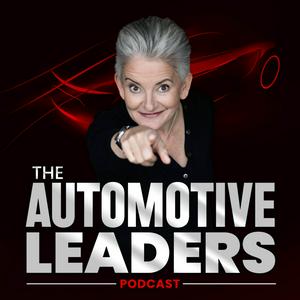This episode is sponsored by Lockton, click here to learn more This episode is available in Spanish - click hereWatch the full video on YouTube - click hereTony Trecapelli's career in automotive began at Saturn, where he saw firsthand what a people-centered culture could look like. Employees were trusted, collaboration was encouraged, and leaders treated the workforce as partners. That environment shaped his perspective early on. When he later moved into GM, the environment felt very different. Decisions came from the top, and people were expected to follow orders without question. Seeing both sides of the industry gave Tony a clear choice about the kind of leader he wanted to be. Instead of command and control, he committed to leading through coaching and support.Now, as President and CEO of Gemini Group, Tony applies those lessons every day. He talks about creating a workplace where people can try, make mistakes, and learn without fear of punishment. In his view, that's how resilience is built — not by avoiding risk, but by facing challenges and adapting together.Tony also reflects on Gemini's small-town Michigan roots. It's a place where people know each other, relationships matter, and the company works hard to keep that spirit alive even as it operates globally. He describes how those values influence daily decisions and help steady the organization in an unpredictable industry.The conversation turns to the realities of being a tier two supplier. Tony shares how tariffs, EV and hybrid transitions, and global competition create constant uncertainty. Instead of pretending to have all the answers, he focuses on being transparent and open with his team, making sure they understand the challenges and feel connected to the bigger mission.Tony also opens up on a more personal level. He talks about what fuels his drive as a leader, the routines that set the tone for his day, and the ways he steps back to recharge outside of work.The episode closes with a live audience Q&A, giving Tony the chance to respond directly to questions about Gemini's future, his leadership style, and the lessons that shaped him. What listeners get from this conversation is more than a story about one leader's journey; it's an honest look at leadership in automotive today. Tony's message is straightforward: leadership is about people first, and culture is what carries a company through change.Themes discussed in this episode:The leadership lessons Tony Trecapelli carried from Saturn’s collaborative culture into his careerThe difference between servant leadership and command-and-control styles in automotive organizationsWhy Tony leads Gemini Group with a coaching mindset that encourages growth through mistakesThe daily realities and challenges tier two suppliers face in a volatile automotive supply chainThe impact of tariffs, EV transitions, and political uncertainty on business decisions for suppliersThe role of mentors, personal habits, and values in shaping Tony’s leadership approachWhy transparency and clear communication are essential for building trust during times of changeFeatured guest: Tony Trecapelli What he does: Anthony A. Trecapelli is the CEO of


